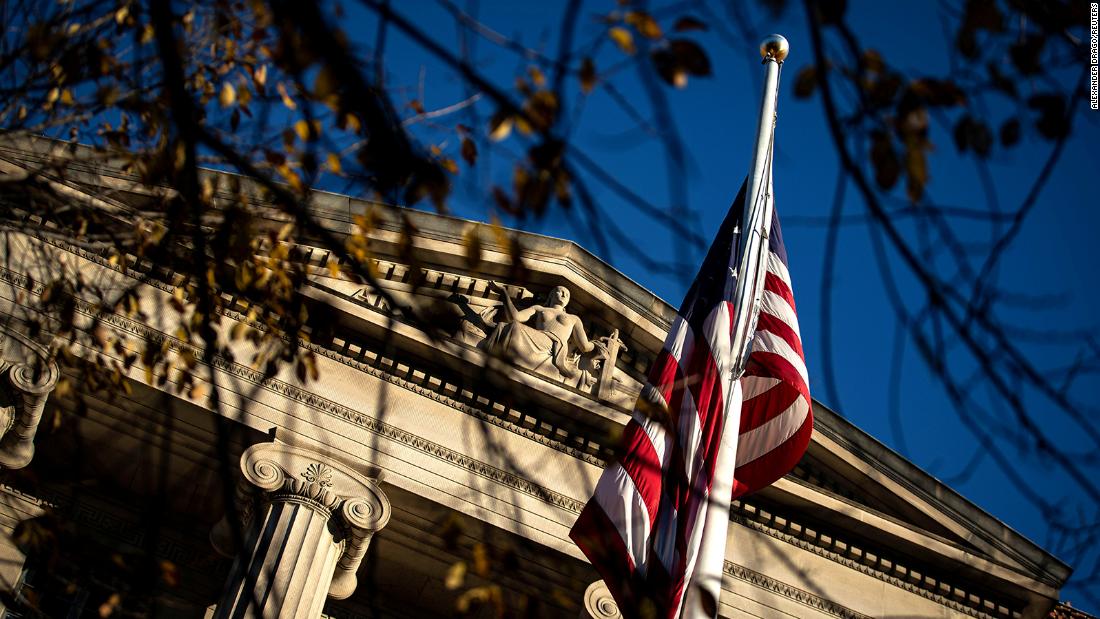“A common refrain I hear from my members is that nobody is going to take this seriously until something bad happens, and we are all braced for the worst,” Amy Cohen, the executive director of the National Association of State Election Directors (NASED), will tell the Senate Judiciary Committee, according to a copy of her prepared testimony obtained by CNN.
Some senior election officials have struggled to get security details from state police, Cohen will testify, in an environment that has only grown more tense amid false conspiracy theories about fraud in the 2020 presidential election. More broadly, election officials lack a clear definition of what constitutes a threat or harassment at the federal level, according to Cohen’s written remarks.
CNN has requested comment from the FBI and the Justice Department, which last year set up a task force for investigating threats of violence and intimidation to election workers.
Assistant Attorney General Kenneth A. Polite, Jr. told Congress on Wednesday, according to written testimony obtained by CNN, that the task force has provided election workers’ organizations with information on how the department decides to open a criminal investigation and has encouraged “broad reporting” of any threats the workers might receive.
Polite said Wednesday that the task force has received a single reported incident of physical violence against an election worker. The task force has brought criminal charges against five people, Polite said, and local officials in Colorado, Arizona and Michigan have each pursued a criminal case for threats against election workers.
“It is important to bear in mind that the vast majority of communications directed at election workers, offensive though they may be, will not constitute true threats subject to federal criminal prosecution due to the robust protections afforded to political speech by the First Amendment,” Polite’s written testimony said.
More than half of the potentially criminal threats were in battleground states where the 2020 results were challenged, such as Arizona, Georgia, Colorado, Michigan, Pennsylvania, Nevada, and Wisconsin, according to the Justice Department.
Election officials have more on their plate than ever in trying to tamp down disinformation about the voting process while keeping an eye on foreign hacking threats and threats of violence.
As a result of the threats and harassment to election officials, “NASED has heard from state election offices in which every employee now has a concealed carry license and actively carries a weapon,” Cohen’s testimony says.
“[W]e have heard from state election offices that have seen long-time employees abruptly give notice en masse with no jobs lined up, citing safety concerns; and we have heard from states that have lost 25 to 30 percent of their local election officials because those public servants no longer want to work in this environment,” Cohen will testify.
Tearful testimony as threats are discussed
Another witness on Wednesday, Kim Wyman — who leads election initiatives at Cybersecurity and Infrastructure Security Agency, the Department of Homeland Security’s cybersecurity arm — choked up during her testimony, telling lawmakers that a tape that was played detailing some of the threats had made her emotional.
“Free and fair elections are the cornerstone of American democracy,” said Wyman, a Republican who previously was Washington’s secretary of state.
Wyman testified that she has overseen over 150 elections in her tenure at roles in Washington and CISA, and that she has “witnessed firsthand the challenges” election officials face.
Republicans on the committee, however, cast doubt on whether a Justice Department task force on election threats was really necessary, grilling Polite on whether the department’s resources would be better spent focusing on the demonstrators outside Supreme Court justices or threats to anti-abortion pregnancy crisis centers.
“The Department of Justice is not choosing what to convene task forces by levels of violence,” said Iowa Sen. Chuck Grassley, the top Republican on the committee. “They’re choosing a political message, I believe, and that will have a real consequence on the safety and lives of many Americans.”
Sen. Mike Lee, a Republican of Utah, asked Polite what measures the DOJ was taking to prevent its investigations into election worker threats from having “an undue effect on the chilling of First Amendment protected activity.”
Polite said that concern — one that requires the careful review of each allegation that is reported — is part of what makes the task force’s work “significant.”
Democrats defended the need to focus on threats against election workers.
“These threats are taking a disastrous toll on our democracy,” Committee Chairman Dick Durbin, a Democrat of Illinois, said.
Building out resources
Federal officials have looked to strengthen physical and cybersecurity support for election administrators.
The US Cybersecurity and Infrastructure Security Agency has 127 physical security specialists across the country who can assess election facilities for safety, and the agency plans to hire 15 more by the end of the year.
Yet funding and other resources are a long-term challenge for security of and administration of elections, according to experts.
The Justice Department clarified in January that a criminal justice grants program that gives states millions of dollars each year can be used to protect against physical threats against election workers.
A Justice Department spokesperson told CNN in June that the department division overseeing the grants had yet to report any use of funds to protect against threats of violence to election workers. CNN has requested an update to that data.
Polite said Wednesday that the DOJ office that runs the grant program, the Office of Justice Programs, conducted “several webinars for election stakeholders” on how to access grant funds, which could be used for protective security details and physical security enhancements to workplaces.
This story has been updated with additional details.

